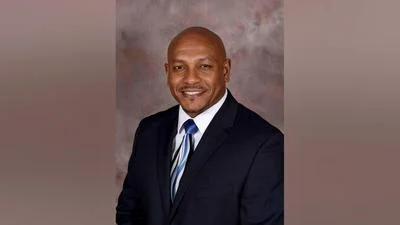The Champaign County Sheriff’s department received a Department of Justice grant to set up a mental health program. | File photo
The Champaign County Sheriff’s department received a Department of Justice grant to set up a mental health program. | File photo
The Champaign County Racial Justice Task Force met June 30 to review notes from the community forums.
"The Champaign County Board seeks to take positive steps to address the issue of racial disparity in the jail population and in the criminal justice system more broadly. The Racial Justice Task Force will report its findings, including a list of recommended actions and means for implementation, as well as further research to address the issues of racial disparity, to the Champaign County Board."
Here are the meeting's minutes, as provided by the task force:
Champaign County Racial Justice Task Force (RJTF)
Meeting Minutes
Thursday, June 30, 2016
6:30 pm
I. Call to Order
Facilitator Byndom called the meeting to order at 6:40 pm. Eleven members were present.
II. Roll Call
Members Present:
L. Branham, S. Byndom, R. Byrd, E. Dee, A. Felty, R. Hughes, A. James, H. Ross, K. Schneider, D. Turner, G. Walter.
Members Absent:
M. Ar-Raheem, S. Balgoyen, B. Butts, A. Evans, D. Harber, E. Patt, C. Randolph, S. Silver.
III. Approval of Agenda
Kevin Schneider moved to approve agenda. Artice James seconded. The motion carried.
IV. Approval of the Minutes
Kevin moved to amend the minutes with the change of “Kevin” to “Artice” regarding the motion to table the agenda remaining items. Artice seconded the motion. The motion carried.
Kevin moved to approve the minutes as amended. Artice seconded. The motion carried.
V. Public Participation
Ron Koester – He wanted to thank the task force for holding the events that it did last week. He was a part of a small group at the IMC that generated a lot of ideas. He also thanked the task force for the time it has volunteered. He recommended engaging the county board early so that it is a process rather than an objective. He believes it is appropriate to share an update with the county board and to encourage them to begin working on issues. He noted pre-trial services as an exploratory process that will require many stakeholders to take part in it, and this will take a while to do this. He also introduced the ideas of mental health services and a detox facility within the jail which were discussed at the community forums. He also said that an update report could include the request for a budget to see what the county board will do with that suggestion. He reiterated his thanks.
Dottie Vera-Weiss – She supported the comments that Ron made. She stated that since the beginning of April she has been reviewing a form on the sheriff’s site which shows the number of individuals in custody or on house arrest. She also reviewed the averages per month and shared that the numbers are going down. This data is reported to the Department of Corrections. There has been a decrease of 20% in the past four years. 88% of people in the jail have not received a sentence. Illinois has been chosen by the Pre-trial Justice Institute (PJI) to review the potential for pre-trial risk assessment programs.
Kevin asked if the communities will be required to do pilot programs. She clarified that it may include a law to change the system to include pre-trial assessments. Lynn explained that the federal government has money for technical assistance for pre-trail programs which is disbursed through PJI. Kevin introduced his concern about a risk-assessment instrument that still included racial disparities. Lynn responded that there are validated assessment programs that do not have that issue, and she learned about some of these in a conference call with experts on pre-trial assessments.
Amy asked about keeping individuals with mental health issues out of jail and providing services for them first. Dottie is aware of similar programs which can be very helpful. She said that the Sheriff’s department received a Department of Justice grant to set up a mental health program. Amy asked who is involved locally. Dottie responded that Chief Deputy Alan Jones is the lead for the program. Amy asked about involvement by other departments, and Dottie was not sure.
VI. Community Events Report
Ryan stated that Sara shared a document with him which included the notes from the community forums. He was asked to share them with the group. Ryan asked Artice to give an introductory summary of the forums. Artice thanked everyone for their work with the forums. He shared some general notes and suggestions which included conflict resolution for kids instead of going to detention centers, officer training for diffusing situations, and a recommendation to read the Department of Justice report on Ferguson (to which Kevin agreed doing). He also shared that he learned a lot including how individuals may get out of jail with a significant amount of fines. Another area of concern is driving without licenses. Someone suggested diversion programs, restorative justice, and reviewing how police stop people.
Amy and Lynn discussed the best way to organize the notes from the forums. Lynn would like to move ahead with choosing subcommittees, possibly brainstorming them at the next meeting.
After discussing juvenile detentions centers with Artice, Kevin suggested having juvenile justice as a subcommittee.
Kevin and Amy discussed the charge of the task force as given by the county board, including what the sub-topics should be. Amy and Henry felt employment should be an area of focus.
Sam restated Amy’s thoughts which was that the charge of the task force was broad, and that she was interested in looking at employment and housing secondary. She clarified that education is included in employment. Sam stated that the task force had discussions on what impacts the task force could have and those dictated where the task force landed. Sam stated that if she feels it appropriate to look into employment, she can. Lynn suggested looking at the process of how to determine subcommittees which could include a significant number of areas, and that we could do this at the next meeting. She also asked if we would bring in one member of the community for each subcommittee.
Ryan asked if it would make sense to organize notes and share them with the group, and then brainstorm ideas and vote on subcommittees.
Kevin asked Amy about the interim reports. She stated those came from the first presentation by the county. Ryan read minutes from that meeting.
Sam summarized the idea by Ryan. He also asked for additional comments about the events. Demario said the events were very engaging and eye-opening. He believes it is important that the task force should not rely on the county board website for getting information out. He shared a highlight from the forum which was the dire need for a detox center and a medical facility for individuals who go to the jail and have a history with drug addiction. It is a problem when someone who is an addict or has a medical condition and is placed in jail unobserved because they are OK.
Ellyn Dee asked what agency staffs the jail. Patsi Petri (of the public) was asked the question. She responded that the contract information which the sheriff has is on the website.
Amy said that some comments from the forums were made about small towns within the county which were interesting.
Kevin discussed the difficulty of suing an authority with regards to issues with individuals who have health issues in the jail. He does not think it is possible that every person in jail could be checked every 15 minutes.
Demario reiterated his concern about health issues in the jail. Kevin agreed and said he believes there needs to be a detox center in the county.
Lynn recommended having someone from the sheriff’s office give a presentation as an update on what is happening with regards to pre-trial services. She also recommended sharing something with the county board about the community forums and the subcommittees the task force will be establishing. She asked for an agenda item about deciding how to update the county board on the task force’s work. She also asked that the task force investigate further how behavioral health diversion centers would help with racial disparity in the jail.
Kevin suggested coming up with a list of immediate recommendations to share with the county board.
Ellyn Dee asked if the Prairie Center has a detox center anymore because they used to have one. Kevin confirmed that they do not and that people are taken to Peoria or Charleston.
Amy mentioned that the county board has already thought ahead about the benefit of having interim reports and recommendations.
Sam mentioned that many of the items that members have voiced are issues that the community also mentioned. He said that some of the individuals in his small groups want the task force to consider the leverage of the county and how resources are allocated. One item to look into is who is admitted into the county jail and how those standards are set. Another item is could a policy be put in place where the county could not detain someone indefinitely for a given set of charges.
He suggested these as items to explore. Sam noted that some students said that the information on the county board website was useful.
Patsi Petrie asked to address the task force. She wanted to note a couple of factual items. The task force meetings are videotaped, since the first meeting. This occurs within the first three days. She noted that when the time for the public meetings approached she told the facilitator that the July meeting of the county board would be available for updating the board on those meetings. She also said that the county board is beginning the budget process. There is $240,000 of discretionary spending which is 0.7% of the total budget. She also said that an extra day has been added to the budget process for the community to request funding. She also said that if you choose to have Alan Jones present to the task force, the task force may want to ask him to discuss the medical contract the sheriff department has.
Kevin asked Patsie about the county jail budget. She explained the county budget process succinctly. There is a three day process when all entities approach the board. When it comes to elected officials, they approve the budget, but how it is spent is up to the entity. Artice asked when the county board will vote on the budget. She responded that the process will begin in August and will go into September. In October the board comes to a tentative approval of the budget. It is passed in November.
Demario had an additional comment about police and community relations and said that it was a huge topic at the community forum. He also spoke about police conduct which was mentioned at the forum. Kevin asked if there was any idea about the state of police relations. Demario responded that none of the interactions that were discussed were positive interactions. There were recommendations for police training about community relations and communication. Rosita asked if there were discussions about the racial makeups of police officers involved in the negative interactions. Demario stated that the only disparity was involving a white officer and a Latino officer.
Artice noted that there is a belief that if police officers live within the community they serve, things will be better. Artice shared his personal belief about how to interpret that. He also said that he believes living in the community can create a better community relationship with police officers.
Demario said that a recommendation was made to have a residency requirement for police officers who police this community. Kevin asked if we know if any police departments have residency requirements.
VII. Task Force Member Comments
Sam noted that the task force has until the 12th of July to put together information to share with the county board. A discussion about the most effective approach for presenting to the committee occurred. It was noted that the next possible meeting to present at would in August but that would be difficult. Artice felt that it was such a short time to get a presentation together. The next meeting to present at is July 21st.
Sam believes we could share information about the community forums and the proposed organization structure. Artice asked if we would need to talk about a budget. Sam said it may be the most prudent time to discuss but we would need to be very thoughtful about the construction of the presentation.
Artice said the he thinks the task force needs to discuss the budget. He thought the budget would be placed on the agenda. Artice moved to place the budget on the agenda as an item for next meeting. Kevin seconded the motion. The motion carried.
Artice was disappointed that the Urbana Traffic Stop Data Task Force group was given a budget up front with no requirements, but this task force was not. Sam said that the task force has a better idea about how much a community event costs, and the task force could decide how many other meetings would occur.
Kevin discussed the need for consideration of printing and report-generating expenses. Lynn stated that she feels the task force needs to consider help for report writing and data gathering. She noted that the task force’s work is not focused just on the county. She also suggested asking other public bodies for funding.
Sam stated that there appears to be a general consensus that the task force should ask for some funds. Artice said that the task force does not want to sit around and wait to ask for a budget. He said that the task force definitely needs funds for research. Kevin agreed that the task force should ask for a general budget.
Lynn proposed the item for next week’s agenda regarding subcommittee structure. She suggested adding it to the beginning of the agenda.
Ryan asked Patsie Petrie to clarify the process for filling the vacancy. She stated that the County will publicize the vacancy and then choose a volunteer from the applications.





 Alerts Sign-up
Alerts Sign-up